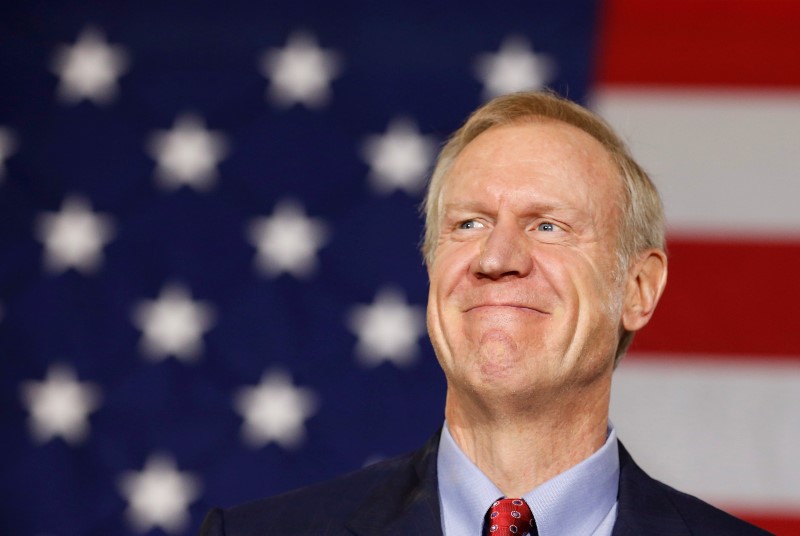By Dave McKinney
CHICAGO (Reuters) - As Illinois enters its sixth month without a budget, Republican Governor Bruce Rauner and the state's legislative leaders reopened spending talks on Tuesday, but displayed few signs of ending their record-long fiscal stalemate.
It was the first time the five have met face to face on the budget since May.
Tuesday's meeting came after a coalition of government watchdog groups implored the governor and legislative leaders to at least sit down to jumpstart stalled talks on a 2016 budget deal.
Senate President John Cullerton, a Chicago Democrat, declared the partially closed-door session productive just for "the fact we had a meeting," along with the promise of more meetings starting next week.
In pre- and post meeting comments, participants largely clung to the same ideological talking points that have left Illinois without a spending plan since July, starving social-service agencies, depriving payouts to lottery players and resulting in two credit downgrades by bond rating agencies.
Rauner stuck to his demands that the Democrat-controlled state legislature sign off on term limits, changes to how the state draws legislative boundaries and union-weakening erosions to collective-bargaining laws and insisted those all would give Illinois the missing and much-needed economic lift other states have felt.
"When we say these are non-budget issues that I'm proposing, I respectfully disagree. They all tie to the budget," the governor said in his opening statement. "We have to grow our way out of our debt, and we're not growing. Our reforms get to growth and restoring confidence in the government by the business community."
Republican leaders expressed frustration with top Democrats following the roughly 90-minute meeting.
"The problem we experience, the speaker says nothing, the Senate president talks a lot, and some of what he says is different out here than in there," Senate Republican Leader Christine Radogno told reporters.
Illinois House Speaker Michael Madigan, Rauner's main Democratic nemesis, insisted none of the governor's demands address the state's budget deficit. Illinois has a $7 billion backlog of unpaid bills and an unfunded pension liability exceeding $100 billion.
Madigan described Tuesday's meeting as "productive," without offering specifics, and explained why as House speaker, he chose to do very little talking during the closed-door session.

"I learned a long time ago, when you talk, you don't learn. And my purpose today was to listen, to learn," Madigan told reporters.